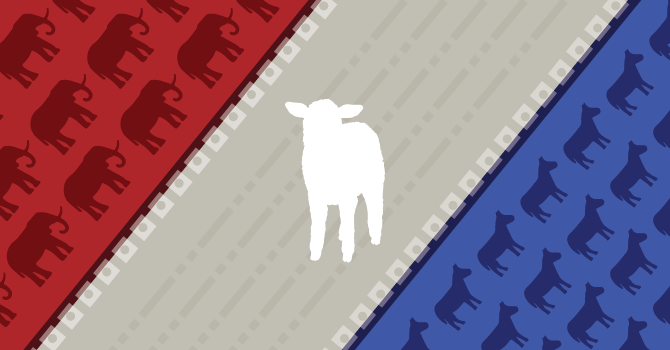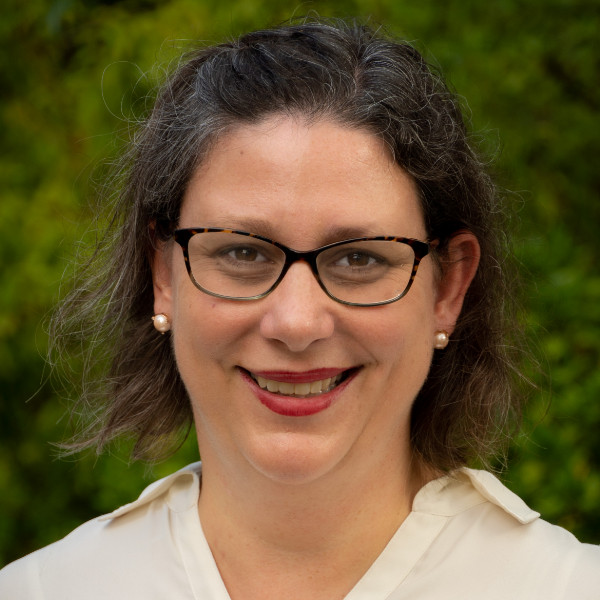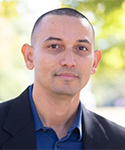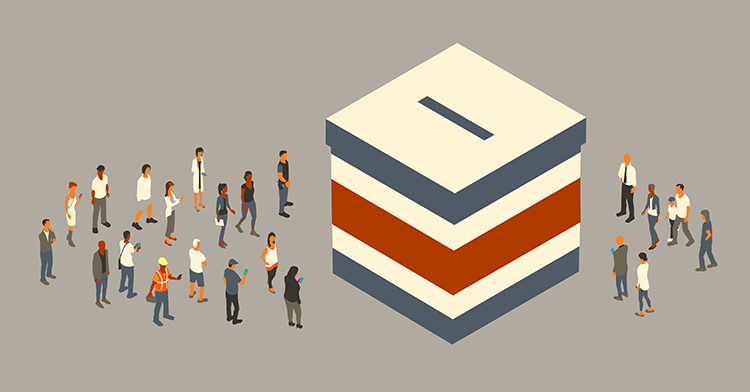For several hours on Election Day, there will be no separation of church and state at our church. Ballots will be handed out like bulletins, poll workers will serve as ushers, and “I voted” stickers will pronounce benedictions upon all who go out into the world.
In elections when high voter turnout is expected, our church sanctuary flips from a place of worship to one of civic responsibility. Polling stations replace the handbell tables. Lines of people stand where rows of worshippers sat the Sunday before.
Some might find this jarring; others, downright offensive. A violation of the sanctuary. A conflation of the sacred with the secular.
The setup is a practical matter, because the sanctuary is the largest room in the building. But I also find this sanctuary-turned-polling place an appropriate metaphor.
Despite all our attempts to keep religion and politics apart, they do come together in the church. What we say in church on Sundays impacts what we do at the polls on Tuesdays.
For a church leader, this is dangerous talk. Christians are, after all, followers of the Lamb, not the donkey or the elephant.
But the issue here is less about partisan thinking and more about ideological consistency. Commonly held ideals like humility, mercy, compassion, justice, hope, peace, faith, forgiveness and love define us in worship as well as at the polls.
We gather around one communion table, wash ourselves anew in one baptismal font and confess belief in one Triune God. We are called to form one body of Christ: “One Lord, one faith, one baptism; one God and Father of all, who is over all and through all and in all” (Ephesians 4:5-6 NIV).
Our belief system is one -- not separate, compartmentalized areas.
For me, this comes as a relief.
I can lessen my concern about keeping the church out of politics and politics out of the church. I can stop my paranoia over pastoral remarks, fearful that they might belie a partisan agenda. I can let the Sunday school discussions go on, even when they grow uncomfortably heated or uncomfortably quiet.
I can have a sense of humor.
Most important, I can spend my time and energy putting meaning behind our beliefs. I can ask questions like, “How do we talk about politics in a way that is humble?” Or, “What does God’s justice really look like?”
Our church staff has designed worship services around core concepts like peace, hope and faith. Special music, children’s sermons, prayers and artistic banners invite the congregation to imagine the possibilities.
Our corporate worship also offers an opportunity for the church to embrace a deeper, more nuanced understanding of sanctuary. “Sanctuary” is the ancient assertion that while God is accessible in every time and every place, there are certain sacred spaces where we can experience the profound presence of God.
A true sanctuary offers not just an absence from the human-made world but a presence of the God-made kingdom. It’s a place holder for the divine, a holy ground within an ever-changing political landscape. Cross looming, candles lit, Bible opened, table and font front and center, here God’s presence is made certain within an uncertain world.
This space is not simply set apart but layered, with complexity and dimension. Our political world, human lives and messed-up society are not simply checked at the doors to the narthex; they accompany us inside. Our stories and our scars are laid bare at the altar of God.
Our church’s Election Day anomaly speaks to a larger, timeless truth: God’s sanctuary is dynamic, not stationary. It is a dance floor of sin and forgiveness, where lives are transformed through the give-and-take of human pride and divine grace.
Rather than monitoring the church for potential breaches in the church/state divide, perhaps our time would be better spent opening wide the sanctuary doors.







